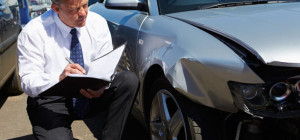Commercial Insurance protects businesses from minor hiccups and major financial losses. Whether you are the owner of a large building or you are currently leasing your workspace, commercial insurance coverage will protect all your business’ physical assets. You should keep in mind that even though commercial insurance plans highly vary from one policy to the other, insurance companies categorize them depending on the events leading to a loss and the insured items. A quick example: fire can easily destroy your entire building and any inside contents; a burst water pipe could damage all your documents and valuable papers while a storm could cause damages to your outdoor signs.

What commercial insurance covers
Commercial insurance is an important investment that will ensure your business’s future. Even though the commercial coverage varies, insurance providers generally classify them according to the type of event leading to the loss and the insured items. Basic commercial insurance covers losses that might result from explosions or fire, theft, damage from aircraft or vehicles and vandalism. They might also provide additional coverage for items like broken glass and earthquakes. According to DC Insurers, the following assets are covered:
- Your building
- The outdoor sign
- Your inventory
- Your furniture and equipment your landscaping and fence
- Others’ property
When you are looking for commercial insurance, you must understand that you have a unique business that changes constantly. A quality commercial insurance company can tailor their commercial insurance policies to fit your personal needs.
The types of commercial insurance
Commercial insurance is important to both small and large businesses. Actually, your business might be the main source of income and the means of supporting your family and dependents. With the right insurance policy, you are able to protect your earnings and assets in case emergencies or disasters destroy part of your entire business asset or premises. The following are the main types of commercial insurance policies to consider:
- Vehicle Insurance
With vehicle insurance, you are able to insure every vehicle that your business owns. And if you regularly use your personal vehicle for business’ operations, you should notify the insurance company.
- Business Interruption Insurance
Various things can lead to the closure of your business. Such events include fire, storms or even flood. If that happens, business interruption insurance will cover the losses associated with your earning until your business is on foot.
- Contents Insurance
The insurance policy covers all assets stored in your business premises. The property owner might have property insurance. However, you should also be responsible for the contents insurance. If you are currently running your business from home, you might need a separate insurance policy.
- Property Insurance
Property insurance is the type of insurance policy that covers business properties and buildings in case of damages or destructions associated with fire and other causes. It is suitable if you are currently running your business from personal property.
- Liability Insurance
If you have been in business for a long period, you already know that accidents are more likely to occur in the workplace. To protect yourself against accident related claims, you have to consider insurance policies. In event of an accident, the insurance cover will lower your liability. The three categories of liability insurance include product liability, general liability and professional liability insurance.
How commercial insurance works
Before you even start planning to meet a commercial insurance agent, you should make a list of the items you intend to insure. That will help you determine the total value of items to insure and the items’ replacement value they are worth insuring. You will also know whether the items are worth insuring.
A commercial insurance plan will pay for losses depending on the item’s replacement cost or the actual cash value. The replacement cost is the total amount necessary to replace, repair or rebuild property with comparable quality and materials without deducting the depreciation. The actual cash value is the amount of money you need to replace equipment with a new one of similar quality and style, less depreciation. Therefore, the premiums for a policy covering an item on actual cash value might be less.







